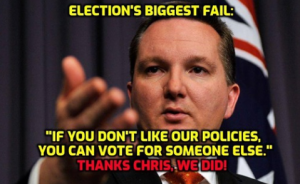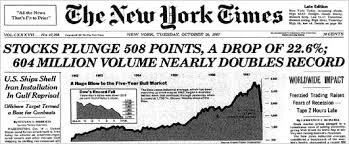If you are like me, you have been receiving an absolute overload of news both on what is actually occurring with the spread of the COVID-19 virus, as well as what the Government is doing to support everyone in this highly unusual situation.
With that in mind, I thought it would be worthwhile to put together a brief email summarising some of the major Government assistance initiatives (please note that due to the limited applicability of some of the initiatives and my desire to keep this email to a relatively short length, the below list is not to be taken as a comprehensive coverage of all the items available).
For Businesses – Irrespective of whether your turnover has fallen
Cash flow Boost for business – In an attempt to keep businesses operational, the ATO will provide tax free cash flow boosts of between $20,000 and $100,000. These payments will in effect pay up to 100% of the tax that the business has withheld from their employee’s wages and salaries (as well as from a few other less common payments such as compensation payments).
This payment will be delivered via a credit against the businesses BAS obligations on 28th April & 28th July 2020 (assuming the business lodges their BAS quarterly).
Note that the minimum payment a business will receive is $10,000 for each of these periods, irrespective of how much tax they are withholding from their staff. As such, small business operators may be entitled to receive quite a sizable boost when compared to the size of their business operations.
For Businesses – When business turnover is down >30%
JobKeeper Payments – In an attempt to encourage businesses to continue to retain their staff, the government will pay businesses $1,500 per fortnight (per eligible employee) for them to pass onto their employees as a salary. The full amount of this must be passed through to the employee, irrespective of whether they were earning less than the $1,500 per fortnight before (i.e. if you employed someone part time, and their income was say $1,000 per fortnight, the employer must then pay them $1,500 per fortnight as part of this arrangement).
Code of Conduct for Commercial Tenancies – In light of the financial impact on business, the Government has set down a mandatory code of conduct between landlords and businesses who have been impacted by COVID-19 to a large enough extent that they are eligible for the JobKeeper payments. This means that a landlord must engage with the business (tenant) to come to an agreement on rent.
South Australia Emergency Grant for Small Business – The SA government is providing emergency grants of $10,000 for small businesses that have been “highly impacted” by COVID-19. This grant is more restrictive than the Australian Government Grant, as some of the requirements are that the business has turnover of at least $75,000, maximum annual payroll of $1.5m and so forth. The SA Government has said that those businesses that are eligible for the “JobKeeper” Payment will be deemed to have been “highly impacted” (the other conditions will still apply). I assume that there may be scope to prove that if your turnover is not down 30%, that you may be able to detail how you are “highly impacted” to still gain access to this grant.
For Employees who have lost their job or are looking for a job
JobSeeker Payment – The Government has loosened the requirements to access the JobSeeker Payment (for those looking for work), so that people can obtain the benefit sooner, and that they can obtain it with less asset testing restrictions.
In addition to the standard JobSeeker payment for those seeking work, those eligible will also receive a $550 per fortnight ‘Coronavirus supplement’ on top of the JobSeeker payment.
Early Access to Super – If you have met one of the following conditions:
- Being unemployed, or
- Being eligible for the JobSeeker Payment, Youth Allowance for job seekers, Parenting Payment, Special Benefit or Farm Household allowance, or
- On or after 1 January 2020
- You were made redundant, or
- Your working hours reduced by 20 percent or more, or
- If you are a sole trader who has had their business suspended or had a reduction in turnover of 20% or more
Then, irrespective of age, you may be eligible to withdraw up to $10,000 from your superannuation tax free before 1st July 2020, and then up to another $10,000 between 1st July 2020 and 24th September 2020.
For individuals receiving certain Government Pensions or Allowances
Economic Support Payment – For individuals who are in receipt of one or more of a number of different Government Benefits, including (but not limited to) the Aged Pension, Disability Support Pension, Carer Allowance, Family Tax Benefit or Austudy, they will receive two rounds of the Economic Support payment.
Additionally, if someone holds a Commonwealth Seniors Health Care Card, Pensioner Concession Card or receives a Department of Veterans Affairs Pension (plus a few other less common items), they too will receive this payment.
The payment will come in the form of a $750 payment that eligible people would have already received or will receive by the end of the coming week, plus a second $750 payment that will be paid from 13th July 2020 on-wards. Note however that you won’t receive the second payment if you are in receipt of the above mentioned ‘Coronavirus supplement’.
I hope that the above has helped to explain some of the many ways the Government is assisting everyone to financially get through the COVID-19 situation. Naturally there are a number of requirements for accessing the above items, so please feel free to call or email with any queries you may have.
Regards
David Kayser









